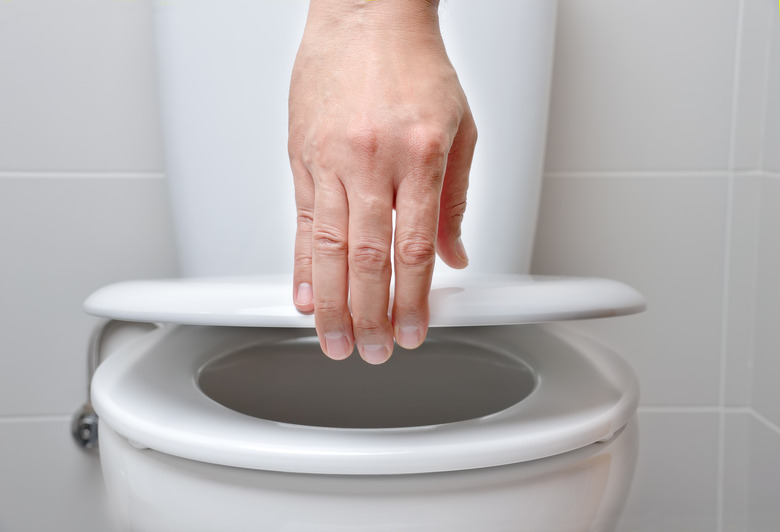Hard Vs. Soft Toilet Seat
We may receive a commission on purchases made from links.
Everyone uses some type of toilet, and each person has a preference as to what they like to sit on when using the facilities. Both hard and soft toilet seats have certain advantages and disadvantages that need to be considered. While comfort is certainly an issue involving toilet seats, sanitary concerns can also be an issue.
Hard Toilet Seat Advantages
Hard Toilet Seat Advantages
Hard toilet seats are easier to clean and can be maintained with the wipe of a sterilized cloth. This means that hard toilet seats are more hygienic compared to soft toilet seats and may harbor fewer germs and bacteria. Hard toilet seats are also less expensive than their soft counterparts and may be a more elegant-looking choice in a bathroom.
When looking for a good-quality hard toilet seat, according to Bob Vila, you want a seat that will support significant weight, be easy to clean and be comfortable. You also want a seat that has durable hinges. Plastic seats resist moisture and are easy to clean. Wood seats have more aesthetic appeal and are best for secondary bathrooms.
There are also quiet-closing toilet seats which don't slam the way many hard toilet seats of the past did. These use controlled hinges to bring the seat down gently to rest on the toilet bowl. Quick release hard toilet seats detach from bolts for easy cleaning.
Hard Toilet Seat Disadvantages
Hard Toilet Seat Disadvantages
In the wee hours of the morning and during colder months of the year, individuals who use the toilet may not like the feeling of a cold, hard toilet seat. The hard material is affected by the temperature and humidity in the room. During the summer months, heat and humidity can cause a hard toilet seat to become sweaty, and an individual's backside may become slick and unsteady when using the toilet.
A hard toilet seat can also crack and become an eyesore if it is made poorly. To avoid this, Bob Vila says that if you buy a hard toilet seat, make sure it's of good quality.
Soft Toilet Seat Advantages
Soft Toilet Seat Advantages
Soft toilet seats have cushions that may relieve pressure when you sit down to use the toilet and may be ideal for those who have hemorrhoids or other medical conditions, according to Harvard Health Publishing. Older people may also prefer to use a soft toilet seat because of the extra cushion and warmth it provides.
Individuals who use a soft toilet seat may find that they are more balanced when sitting down, which can help reduce the risk of falls. Newer coverings also make soft toilet seats more sanitary than older padded seats.
Soft Toilet Seat Disadvantages
Soft Toilet Seat Disadvantages
After a soft toilet seat is used over an extensive period of time, cracks can develop in the vinyl covering, which can lead to unsanitary conditions. Urine and other liquids can become trapped in the padding, causing the seat to require replacement. Replacing a soft toilet seat needs to happen more often when compared to a hard toilet seat and can increase costs over time.
